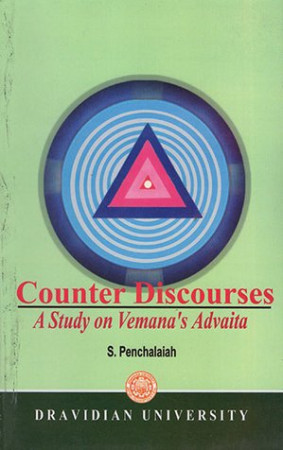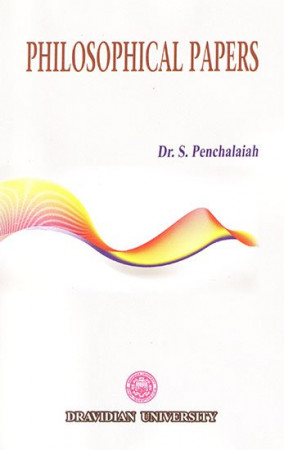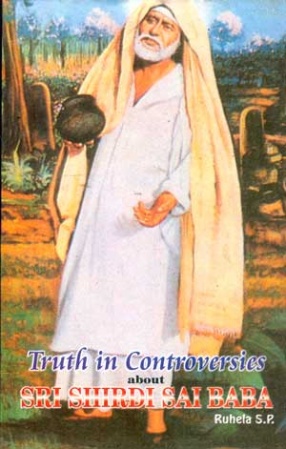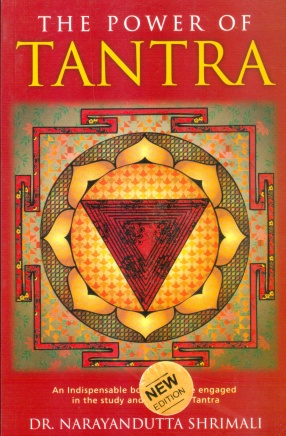Counter Discourses- A Study on Vemana's Advaita
Drawn towards the objectives of Dravidian University, I felt esteemely obliged to study the Dravidian philosophy, literature, culture and religion and I chose a project entitled "Counter Discourses - A Study on Vemana's Advaita". My aim of this work has been to reproduce the thought of the original poems of Vemana in clear and simple understanding English for readers and the laymen. Vemana was a great poet-philosopher, saint, social reformer and a radical humanist, was born on 17" century AD on the stage of history in Andhra Pradesh a region of Southern India. He revolted against the tyranny of destination in the society based on caste, creed and gender advocated by the followers of Varnasrama Dharma. He asserted that both men and women could attain liberation (Moksha), if you know yourself. He made efforts for building a universal religion and casteless society through his Advaita philosophy. The teachings of Vemana and the values he perused in his own life and meaningful and relevant to people of all countries and hold good for all times. His life was a message to humanity that the message is enshrined in his works. He who studies his poetry with faith and devotion to understand the mighty import of his magnificent poems.and implement them in his life fully and sincerely. The source material for the preparation of this work is taken from different books, journals, inscriptions, mutts, religious magazines, newspapers, seminar papers, besides local histories. I am indebted immensely to a number of scholars who have written on Saint Vemana’s Literature and Philosophy. This work has been divided into Seven Chapters. The First Chapter is Introduction. It surveys the Socio-religious conditions and philosophical texts and literary sources of Andhra Pradesh. The Second Chapter elucidates the Life at Glance of Vemana. The Third Chapter is devoted to the Comparative study of the Concept of Brahman as seen in the Vedas, the Upanishads and Vemana. Chapters Four and Five speak about Vemana’s Concept of Maya (Phenomenalism) and Saivadvaita Philosophy in detail. In the course of discussion Vemana’s views on Advaita Philosophy the views of other thinkers like Basaveswara, Sri Narayana Guru, Tiruvalluvar, Kant and Berkeley are compared and contrasted. Chapter Six deals with a study of the Concept of Moksa (Liberation). The Seventh Chapter elucidates the summary of the main findings of the study in the form of a conclusion. I have received generous help from a number of people in various ways in the preparation of this work. My indebtedness to them is so great that I can never repay it. All that I can do is to record my-gratitude to them. At the outset, I express my deep sense of gratitude to Prof. Kadapa Ramanaiah garu, Vice-Chancellor, Dravidian University, Kuppam for his ingenious encouraging and support for me in the preparation of the work. I have great pleasure to place on record my deep sense of gratitude to my beloved teacher, Prof. C. Ramaiah garu, Rtd. professor of Philosophy and Dean of Academic Affairs, S. V. University, Tirupati, and at present the Member of Indian Council for Philosophical Research, New Delhi who was of utmost help and guidance in the preparation of this work. I express my deep sense of gratitude to Prof. N. Bhaktavasthala Reddy Head, I/C and former Head I/C Prof. M. Kumaraswamy Raju Professor of English, Dravidian University and for their encouragement. I wish to express my sincere thanks to my beloved teacher Prof. B. Sambasivaprasad, Professor of Philosophy, S. V. University, Prof. K. Anandan, Professor of Telugu, P. S. Telugu Viswavidyalayam, Hyderabad and Dr. Bhudati Venkateswarlu Associate professor of Telugu, Dravidian University. I thank the authorities of the libraries of Dravidian University Kuppam, S. V. University Tirupati, Karanataka University Dharwada for their kind permission to use the material available in their institutions. My grateful thanks are due to my colleagues in the Department of comparative Dravidian literature and Philosophy, for their encouragement and moral support. Further, I acknowledge wholeheartedly and with all humility the help, I have received from a numbers of historians, poets, sociologists, and other scholars with whom I have interacted at various conferences and seminars. My sincere thanks to Dr. V.Gopalakrishana, Institute of Asian Studies Chennai Dr. B. Tirupati Rao, Associate Professor, Depart of English & Communications has kindly perused the manuscript and making suggestions before going to press. I am thankful to the Prasaranga, Dravidian University for publication of this work. Tam thankful to my beloved father-in law Sri. S. Nagulaiah (Rtd) Principal of Government Junior College Madhira Khammam and my life partner Smt. S. Hemalatha and my daughters Likhita and Nikhila for their constant co-operation and help in several ways for preparing the book.
Get it now and save 10%
BECOME A MEMBER








Bibliographic information